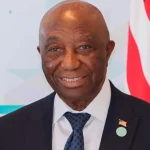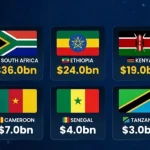The Federal Government of Nigeria (FG) has officially removed the 5% excise duty on telecommunications services, a policy reversal expected to ease financial pressure on millions of mobile subscribers across the country.
Confirming the development, Aminu Maida, Executive Vice Chairman of the Nigerian Communications Commission (NCC), said President Bola Tinubu ordered the removal of the levy during deliberations on the Finance Act.
“President Tinubu directed the removal of the 5% excise duty on telecommunications services,” Maida announced.
This decision affects more than 171 million active telecom users, who had already been grappling with a 50% tariff increase approved earlier in January 2025.
Background: Why the Telecom Tax Was Introduced
The 5% telecom tax was first introduced in 2022 under the Buhari administration as part of efforts to increase non-oil revenue.
- It applied to voice and data services.
- Operators were mandated to remit payments monthly.
- The levy was justified as a way to bridge Nigeria’s revenue shortfall.
However, from the outset, the tax faced intense criticism from telecom operators and consumer advocates.
Industry Backlash: Why the Tax Was Controversial
Telecom operators, under the Association of Licensed Telecom Operators of Nigeria (ALTON), argued that the excise duty would:
- Place additional burden on consumers and businesses.
- Increase the effective tax rate on telecom services to about 12.5%.
- Add to already excessive levies, including:
- 39 different taxes and levies on operators.
- 7.5% VAT.
- 2% mandatory contribution to the NCC.
With high operational costs, driven by diesel expenses, foreign exchange shortages, and equipment import costs, operators warned they would have no choice but to pass the tax onto consumers.
Impact on Telecom Tariffs and Data Prices
In January 2025, the NCC approved a 50% increase in telecom tariffs to help operators manage rising costs.
Examples of Tariff Increases:
- MTN 1.8GB monthly data plan: ₦1,000 → ₦1,500.
- MTN 20GB data plan: ₦5,500 → ₦7,500.
- SMS charges: ₦4 → ₦6 per message.
The average cost of 1GB of data rose from about ₦287 to ₦431, making internet access more expensive for households.
This shift has forced many Nigerians, especially low-income users, to scale back data usage, downgrade plans, or limit non-essential app use.
What This Means for Nigerian Subscribers
With the removal of the 5% telecom excise duty, subscribers are expected to enjoy some relief from the high cost of voice and data services.
However, with inflation, rising fuel prices, and foreign exchange challenges still impacting operators, tariff pressures may persist.
Still, the policy reversal is a positive step for digital inclusion, helping millions of Nigerians stay connected in an increasingly digital economy.
Final Thoughts
The scrapping of the 5% telecom tax highlights the government’s recognition of the critical role telecommunications plays in Nigeria’s economy. By easing the burden on consumers, the move could:
- Encourage greater internet adoption.
- Support businesses relying on digital platforms.
- Promote Nigeria’s digital transformation goals.
As the telecom sector adjusts, the key question remains: will operators roll back part of the 50% tariff increase, or will Nigerians continue to feel the squeeze?













